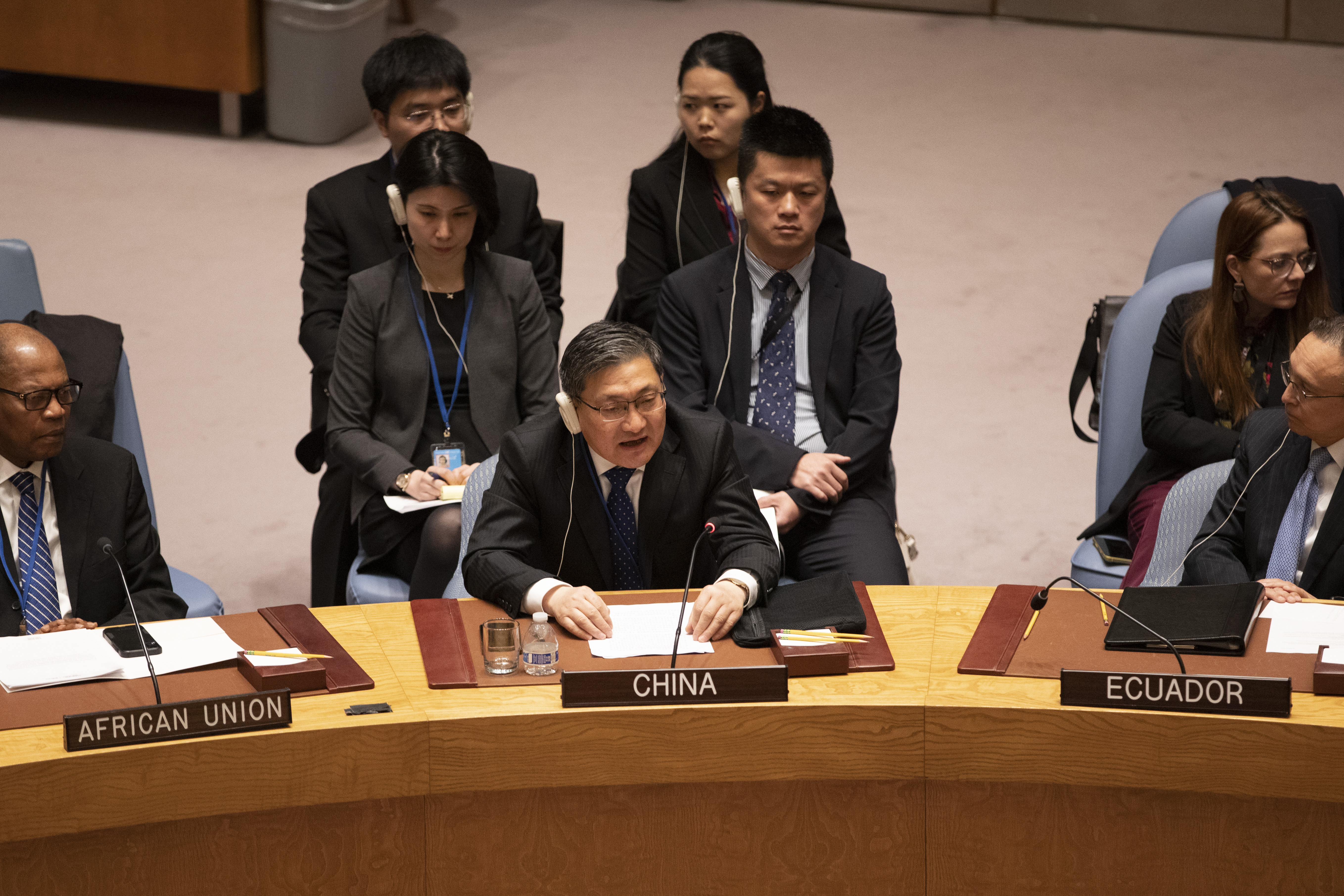| Statement by Liu Yuxi, Special Representative of the Chinese Government on African Affairs, at the High-Level Open Debate on “Peace and Security in Africa: The impact of development policy on the implementation of the ‘Silencing the Guns’ initiative” |
| 2023-03-30 12:23 |
|
Mr. President, I thank Mozambique for holding this important meeting and welcome His Excellency President Filipe Nyusi to preside over the session. I also wish to thank Special Adviser Cristina Duarte, Envoy Mirko Manzoni and High Representative Mohamed Ibn Chambas for their briefings. Africa is a rising continent, a fertile land of hope brimming with vigor and vitality. African countries and peoples are working actively to explore development paths suited to their national conditions, address political, economic and social challenges, safeguard regional peace, and promote sustainable development. The African continent is an important force in the world today. Without peace and development in Africa, there will be no stability and prosperity in the world. Under the current circumstances, the Security Council needs to give some serious thought to questions such as how to strengthen international coordination to better help Africa meet its challenges, how to forge synergy between development policies to address the root causes of conflicts, and how to advance the UN’s cooperation with Africa to provide stronger support. First, it is important to support Africa’s leading role in its own peace and security. Africans know Africa best, and African countries are core forces for maintaining their own peace and security. The international community should adhere to the principle of seeking African solutions for African problems, and provide assistance on the basis of respect and trust, rather than interfere in other countries’ internal affairs in the name of human rights or even overstep their authority. For post-conflict countries, we should support their own choice of development paths and governance models that suit their own national conditions, rather than find fault with them, still less engage in the so-called “democratic transformation”. Second, it is important to support African countries’ security capacity building. This is the only way to address both the symptoms and the root causes of the conflicts in Africa. We need to help African countries build a professional, efficient and strong security sector to tackle real security threats such as terrorist extremism and communal conflicts. Last August, China facilitated the adoption of a presidential statement at the Security Council, calling for support for security capacity building in African countries in a comprehensive and targeted manner, with tailor-made measures in line with the actual need of African countries. The statement is an important political guidance for security cooperation with Africa. The UN peacekeeping operations in Africa need to respect the views of the host countries and support their efforts to strengthen security sector development and reform. The arms embargoes imposed by the Security Council on Sudan, South Sudan and other countries have hindered the development of security capacity of these countries and should be adjusted or lifted in a timely manner. Third, it is important to support Africa in achieving sustainable development. Development and security are interdependent and complementary. President Xi Jinping has proposed the Global Development Initiative, emphasizing the need to prioritize development cooperation in global macro-policy coordination, address prominent issues and challenges in national governance through development, and forge a global community of development with a shared future. When working with Africa, the international community needs to strengthen coordination with the AU’s Agenda 2063, the “Silencing the Guns” initiative and other initiatives, and support Africa in advancing infrastructure development, speeding up industrialization, fighting pandemics, eliminating poverty, boosting employment, and accelerating the implementation of the 2030 Agenda for Sustainable Development. The root cause of Africa’s development issue is the unfair international economic order. Developed countries must shoulder their due responsibilities, honor their commitments to development aid and repay the historical debts they owed to Africa. Fourth, it is important to support Africa’s efforts to seek strength through unity. Last year marked the 20th anniversary of the AU. Over the past 20 years, the AU has held high the banner of strengthening through unity, solidarity and cooperation, committed itself to exploring a development path that fits well with Africa, and spoken with one voice in international affairs. These efforts have vigorously safeguarded peace, security, stability and development in Africa. The AU-led peacekeeping operations, as a useful practice for Africans to seek African solutions for African problems, should get flexible, predictable and sustainable financial support. China firmly supports Africa’s in-depth participation in the G20, BRICS and other mechanisms, and firmly supports Africa’s greater role in global governance and international affairs. Mr. President, China has all along stood together with Africa through thick and thin. China will as always view Africa as a high priority in its external relations and prioritize Africa’s peace and security in its work at the Security Council. China and Africa have worked jointly to launch the “Partnership for Africa’s Development” initiative, promote the “Outlook on Peace and Development in the Horn of Africa”, implement the “Nine Programs” for China-Africa cooperation, and build a high-level China-Africa community with a shared future. We are ready to work together with the international community to advocate a vision of common, comprehensive, cooperative and sustainable security, help Africa silence the guns, protect the world’s “source of hope” and build a community with a shared future for mankind. Thank you, Mr. President. (Photo: Xinhua Xie E) |
| |||||||||||||
| |||||||||||||
